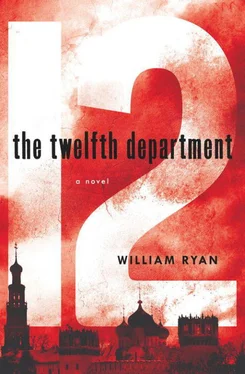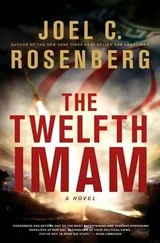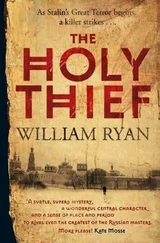Korolev raised an eyebrow. He didn’t doubt that she was sincere—there was no emotion in what she’d said, just a bald statement of fact. But still. He decided to change direction.
“Were you aware your husband met with Dr. Shtange on the morning of his murder?”
“Met with Shtange?” She repeated his words as if surprised by them.
“They didn’t get on, did they? Dr. Shtange was unhappy with the way things were done at the institute, wasn’t he?”
“Who told you that?” she asked indignantly. “Was it Shtange? My husband was the director of the institute and Shtange was his deputy, so Shtange had no right to be unhappy with anything and certainly no right to attempt to alter the way things were done. In my husband’s opinion he was a saboteur and a wrecker.”
“I see,” Korolev said, a little taken aback by her passion. “Had they worked together for long?”
“Three months,” she replied, calmer now. “It wasn’t my husband’s decision—he was barely consulted. If the decision had been left to him, the man would still be in Leningrad working with his monkeys.”
“His monkeys?” Korolev asked.
“And his dogs,” she said, her eyes sparkling with disdain.
“And dogs as well, you say?”
Did she think he’d worked in a zoo of some kind?
“Dogs. My husband believed it was impossible to make real scientific progress in the study of the human brain using animals. At best they provide indications—but if you want to drink water, you have to go to the river. Shtange’s experience was therefore entirely useless for the work he was assigned to.”
“I suppose,” Korolev said, sensing an opportunity, “Deputy Director Shtange must have found it difficult to adapt to working with humans. Was that where some of the conflict arose?”
“That is exactly where the conflict arose—not only did the fool not understand the processes my husband was developing, he stated that he considered my husband’s work to be unscientific. Even unethical. Shtange, the monkey man, considered my husband unethical.”
“Which particular aspects did he consider to be unethical?” Korolev asked, innocently. Azarova opened her mouth to answer and then stopped herself.
“I’ve told you I can’t discuss the details of my husband’s work, not that he told me about it in any detail. His research was highly secret. But he believed Shtange’s supposed concerns were in fact attempts to sabotage its success.”
“I see, did your husband perhaps take some action against Comrade Shtange? Inform State Security as to his concerns, perhaps?”
She shrugged, not meeting his gaze, and her reaction was as good as a written confirmation. Well, that was a motive for murder, Korolev thought—if only Shtange hadn’t had such a solid alibi.
“You disagree with such an action, Comrade Korolev?” Azarova’s question interrupted his thoughts.
“Comrade Azarova, if you think I disagree with citizens bringing their honest concerns about potential enemies of the State to the proper authorities, then you’re much mistaken.” He spoke sternly, as he was supposed to. “One more question—it seems likely that your husband opened the door to whoever killed him. Your maid says she locked it when she left to go shopping and unlocked it when she came back and found him dead. Was he expecting anyone to visit that morning?”
“No one.” She shook her head after a moment’s consideration. “And I can’t think who he would have opened the door to either, if he was working. Galina was under strict instructions to admit no one who might interrupt him and he certainly wouldn’t have answered the door himself.”
“I see,” Korolev said. “One last thing—are you aware that Dr. Shtange was also murdered? On Tuesday morning?”
“Murdered? Shtange?” She looked at him blankly.
“You’re sure you weren’t aware he was dead? No one called to tell you? A friend perhaps?”
“No one.”
It amazed him that the Twelfth Department hadn’t questioned her about the deputy director—because if Azarova was in the clear for her husband, that wasn’t necessarily the case with regard to Shtange’s murder.
“May I ask where you were on Tuesday morning?”
“I was at the orphanage. I leave at eight and I would have arrived at eight-fifteen. I departed at twelve-thirty, no earlier.”
“The day after your husband’s murder?”
“Of course.” She seemed surprised he should question it. “I believed my duty to the State required it. We’re under siege by our enemies, Comrade Korolev—we might as well be at war. If you were a soldier and your brother was killed beside you in battle, you’d fight on—wouldn’t you? This situation is no different. That’s what being part of a Revolution means.”
Korolev thought it best to say nothing, just write the information down: “Tuesday morning left for orphanage at eight,” and the time she’d returned. But he did allow himself to add a small exclamation mark and an asterisk. He looked at his watch. He needed to wind this up.
“Do you mind if I ask why you’re not there today?”
“Doctor Weiss believes I need to rest—he was annoyed with me for going out on Tuesday. He said I must conserve my strength.” She seemed torn between gratitude and irritation.
“And you do what he says?”
She shrugged.
“Perhaps I shouldn’t have gone there on Tuesday. I’m not sure I did useful work. Perhaps I made a mistake—it’s difficult to tell.” She seemed tired now, her voice becoming quieter each time she spoke.
He shut his notebook. Slivka could talk to her again later—she might get more out of her with a different approach. And for the moment, he’d no good reason to doubt anything Azarova had said.
“Can you understand what my life will be without him?” she said, looking up again through her tears. “I’ve lost—so much. And more will be taken. Galina has heard that the neighbors are already jostling among themselves to take over this apartment. I’ll be lucky if I’m allowed to stay in the building.”
Korolev nodded—he didn’t think she was being paranoid. He’d come into his own room because Valentina Nikolayevna’s husband had been killed in an accident. In some buildings in Moscow there were two or three families sharing smaller spaces than one of this apartment’s bedrooms. If she was looking for sympathy, she’d find none from her fellow Muscovites.
“Thank you for your time, Comrade. May I look around your husband’s study once again? I’m afraid it’s necessary.”
“Help yourself,” she said, turning away to look out the window, and leaning her head onto the back of the armchair.
He nodded and walked out into the hallway. There was no sign of the girl.
“Where’s your maid?”
“She’s gone for bread,” she said, and Korolev could have sworn she was crying, but he thought it impolite to go back to check. Instead he turned the handle to the professor’s study and saw that, as with Shtange’s, the bookcases in his study stood bare, cleared of books and papers. His footsteps sounded loud as he walked across the room to the open window.
He leaned out, looking around to see if there was any possibility someone could have climbed in from somewhere, but it seemed impossible. Perhaps if they’d been one of Shtange’s monkeys—otherwise there was a five-story drop to the pavement below.
He turned back to look at the room once again, even considering the two small ventilation grilles high on the wall behind the professor’s desk—but not even the smallest of monkeys could have got through one of them. And the mice the professor had complained of wouldn’t have been firing bullets.
Everything pointed to the killer having been someone Azarov had let into the apartment.
Читать дальше












